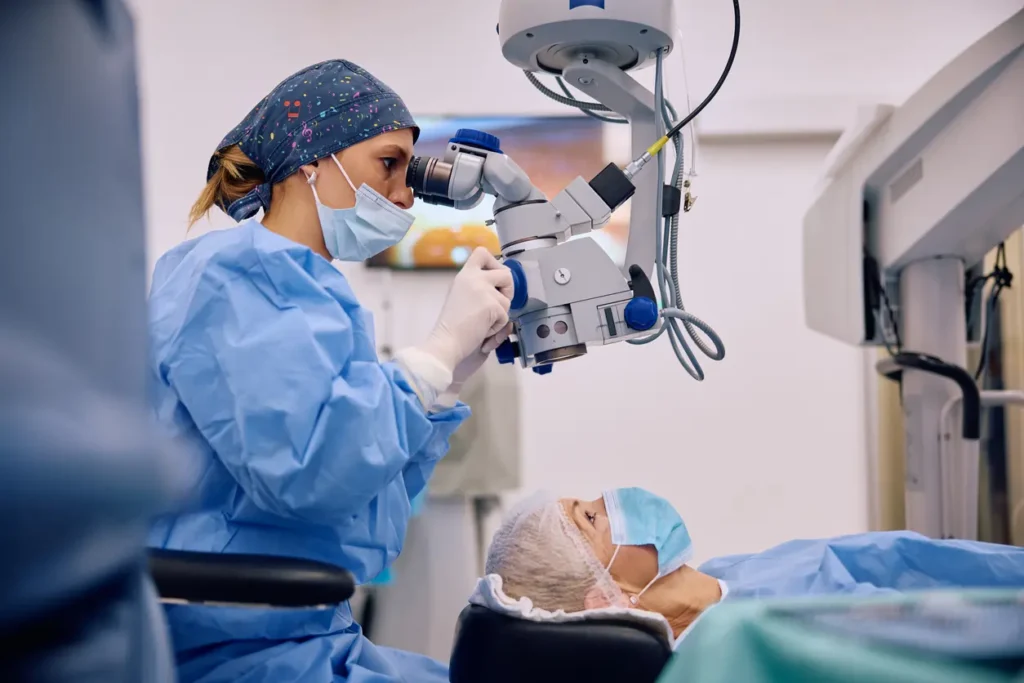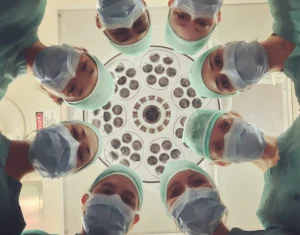
Story at-a-glance
- Ophthalmologists face unique disability risks due to reliance on microsurgical dexterity and visual acuity.
- Standard disability insurance often falls short, lacking coverage for visual function and surgical precision.
- True own-occupation policies are essential, protecting you even if you can work in a non-surgical role.
- Look for residual benefits, ergonomic coverage, and visual-specific protections in your policy.
- Apply early—before symptoms start—to avoid exclusions and lock in lower rates.
In the visually precise and technically demanding world of ophthalmology, your career depends on an extraordinary combination of microsurgical dexterity and diagnostic acuity. Few specialties integrate such delicate procedural skills with specialized perceptual abilities—creating unique disability vulnerabilities that require customized protection. Here’s why disability insurance for ophthalmologists needs to be designed specifically for the distinctive risks of ocular medicine and surgery.
The Specialized Vulnerabilities of Ophthalmological Practice
Ophthalmology creates disability exposures unlike other medical specialties:
Microsurgical Precision and Hand Stability
Your surgical success hinges on submillimeter precision during delicate procedures from cataract extraction to retinal surgery. Even minor tremors, nerve injuries, or subtle hand instability can immediately render microsurgical practice impossible. The extraordinary technical specificity of ophthalmic microsurgery means conditions that would be inconsequential in daily life or even manageable in other specialties can abruptly end your surgical career.
Visual Acuity and Perceptual Processing
The irony of ophthalmology is that your own visual function is fundamental to your practice. Conditions affecting your visual acuity, contrast sensitivity, or depth perception can immediately impact diagnostic and surgical capabilities. Unlike other specialties where adaptive technologies might compensate for visual limitations, ophthalmologists depend on exceptional personal visual function for clinical effectiveness.
Microscope-Related Ergonomic Strain
The hours spent operating through microscopes create extraordinary vulnerability to cervical spine disorders, focal dystonia, and specialized pattern injuries. Operating microscopes require maintaining precise head and neck positions during delicate procedures, creating cumulative stress that can progressively limit surgical stamina long before affecting general function.
Cognitive-Visual Integration
Ophthalmology requires exceptional integration between visual perception and technical execution. Conditions affecting this visual-motor coordination—from subtle neurological changes to medication side effects—can substantially impact surgical precision long before affecting general function. The integration demands of ophthalmic surgery create vulnerability to specialized neurological conditions that might remain subclinical in other contexts.
Laser-Related Risks
The routine use of therapeutic lasers creates unique occupational exposure to potential retinal damage, particularly from years of cumulative exposure to scattered light during procedures. This specialized vulnerability creates the potential for progressive visual impairment that could impact diagnostic and surgical precision while sparing general visual function.
Why Standard Coverage Falls Short for Ophthalmologists
Hospital-provided or generic disability insurance typically contains significant limitations for ophthalmological practice:
- Definitions of disability that offer inadequate protection for your occupation
- Benefits tied to specific employers, limiting practice flexibility
- Taxable benefits that substantially reduce actual income replacement
Essential Disability Insurance Elements for Ophthalmologists

Surgical Specialty Own-Occupation Definition
As an ophthalmologist, you need a policy with an enhanced “own-occupation” definition of disability. This ensures you’ll be eligible receive full benefits if you can’t perform your unique occupation—even if you could work in another capacity.
Financial Strength for Long-Term Security
Select insurers with exceptional financial strength ratings (Comdex score of 90+) and mutual ownership structures where policyholder interests come first. A disability claim could span decades—institutional financial stability ensures the company will fulfill its obligations throughout your claim period.
Ophthalmology-Specific Features
Prioritize these critical policy elements:
- True own-occupation definition of disability
- Residual disability benefits
- Future insurability options that protect high income growth potential
The Financial Reality at Stake
The financial implications are substantial. A 40-year-old ophthalmologist with a surgical practice earning $400,000 annually could lose over $10 million in lifetime earnings if permanently disabled. Yet many ophthalmologists hesitate at disability insurance premiums of $300-$600 monthly—far less than investments in surgical equipment and practice infrastructure.
Consider this reality: If subtle hand tremors affected your ability to perform precise corneal suturing, or if cervical disc disease made maintaining proper positioning during lengthy retinal procedures impossible, how would you maintain your financial security? What alternative career path could replace your current income without requiring the specialized microsurgical skills that define ophthalmological practice?
The Surgical-Medical Balance
The distinctive blend of surgical and medical practice in ophthalmology creates unique income vulnerability. For many ophthalmologists, surgical procedures represent 60-70% of practice revenue—creating disproportionate financial impact if surgical capacity is compromised while medical diagnostic abilities remain intact.
Standard disability policies often inadequately address this surgical-medical balance, potentially leaving ophthalmologists significantly underprotected if only surgical capacity is compromised by disability.
Making the Right Policy Selection
When comparing disability policies, ophthalmologists should focus on these key differentiators:
- Definition of disability specific to your unique occupation
- Financial strength ratings of the insurance carrier
- Portability between practice settings and geographical locations
Many ophthalmologists find that investing in premium coverage from top-rated carriers provides essential security. The difference between standard and specialized coverage could determine whether you maintain financial stability after disability or face significant lifestyle adjustments.
Secure Your Future Today
The optimal time to secure disability insurance is now—while you’re healthy and before any surgery-related physical symptoms develop that could limit your coverage options. Many ophthalmologists delay this protection until early ergonomic symptoms emerge—when it’s often too late to obtain favorable coverage.
Request your personalized disability insurance quote comparison today by clicking the button below.
Our team specializes in disability coverage for ophthalmologists and can help you understand the crucial differences between policies that could significantly impact your future security.
Your specialized microsurgical skills represent your most valuable financial asset—protect them with ophthalmologist disability insurance.
Frequently Asked Questions
What makes disability insurance important for ophthalmologists?
Ophthalmologists rely on vision and fine motor skills. Minor issues like tremors or blurred vision can end a career. Custom coverage protects against this.
What does own-occupation mean for ophthalmologists?
It means if you can’t perform your specific occupation, but can still do other work, you may still get paid your full benefit.
Are visual problems covered by standard disability insurance?
No. Many policies limit coverage for sensory losses. Ophthalmologists need coverage that includes visual function protection.
Does disability insurance cover my practice expenses?
No, not unless you add business overhead expense insurance. Personal policies just replace your income.
When should I get disability insurance?
Before you notice symptoms. The younger and healthier you are, the better your pricing—and the fewer policy restrictions.
Ready to protect your future?
Get a personalized side-by-side policy comparison of the leading disability insurance companies from an independent insurance broker.




